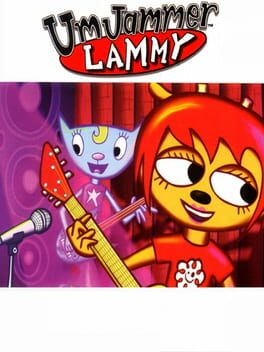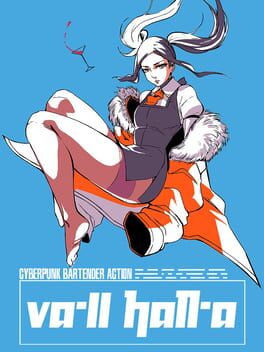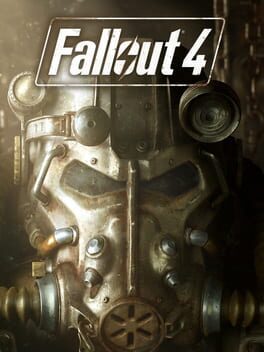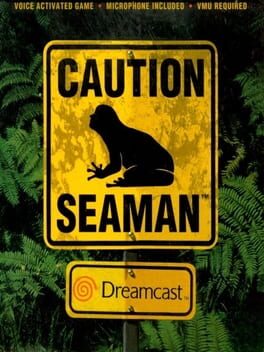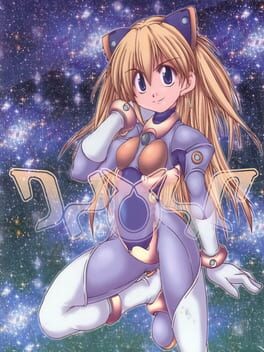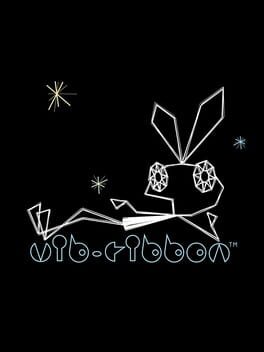karameru
82 Reviews liked by karameru
I had unfairly high expectations for this game. I was 11 when this thing came out so this was my "forbidden fruit" game that I watched all the youtubers play but was always too scared to get all the way through a let's play of. 6 years later and I play it and yeah it's great but damn I was wishing for so much more. The writing is iffy (iffier than the average resident evil game which is at least iffy in a tongue in cheek way, while this game was taking it self very seriously a majority of the time) . A prime example of the poor writing is the scene with the cop in the beginning. The whole conversation is unrealistic and dumb and a lot of scenes felt a lot like that.
God the Baker family was cool, though, but their sections felt weirdly rushed. The first half of the game felt like some weird boss-rush game where you're just mowing down the family and none of them get enough screen time and die way too early.
And rather than expanding on the horror of the game and keeping the rural, survival horror vibe, the game suddenly doubles down and tries to be RE4. The tone completely changes and suddenly one of the family members turned into a giant monster.
It was awesome, I admit it. The moment this happened I was surprised but pleasantly surprised. The game's giving up on the horror halfway through but at least we're getting cool ass scenes like this.
Or... Not? The rest of the game after that boss was an unsatisfying mess. The villains went from genuinely well-designed, disconcerting creatures who really did freak me out at points... To some stupid little girl. Creepy kids can be scary but not when you give them a full backstory and explain everything about them, kills all the horror. And she's sure as shit not intimidating either.
You go through the infamous boat section. I didn't think it was the worst thing ever but holy hell was it annoying, and it showed how veryyyy little effort went into enemy variety. I forgave it at first because of the boss-rush vibe of the game, but now it's not that anymore. It's just these boring mold dudes over and over and over and over and-
And then the game just ends.
You fight these guys for an hour or two, do one (I admit cool) cinematic boss fight that lasts 2 minutes max and could be beaten by a toddler with broken arms and then the game just ends.
God that was lame. The game didn't know if it wanted to go full horror or go full action and as a result the game was neither and I am so disappointed.
Hope Village is better.
God the Baker family was cool, though, but their sections felt weirdly rushed. The first half of the game felt like some weird boss-rush game where you're just mowing down the family and none of them get enough screen time and die way too early.
And rather than expanding on the horror of the game and keeping the rural, survival horror vibe, the game suddenly doubles down and tries to be RE4. The tone completely changes and suddenly one of the family members turned into a giant monster.
It was awesome, I admit it. The moment this happened I was surprised but pleasantly surprised. The game's giving up on the horror halfway through but at least we're getting cool ass scenes like this.
Or... Not? The rest of the game after that boss was an unsatisfying mess. The villains went from genuinely well-designed, disconcerting creatures who really did freak me out at points... To some stupid little girl. Creepy kids can be scary but not when you give them a full backstory and explain everything about them, kills all the horror. And she's sure as shit not intimidating either.
You go through the infamous boat section. I didn't think it was the worst thing ever but holy hell was it annoying, and it showed how veryyyy little effort went into enemy variety. I forgave it at first because of the boss-rush vibe of the game, but now it's not that anymore. It's just these boring mold dudes over and over and over and over and-
And then the game just ends.
You fight these guys for an hour or two, do one (I admit cool) cinematic boss fight that lasts 2 minutes max and could be beaten by a toddler with broken arms and then the game just ends.
God that was lame. The game didn't know if it wanted to go full horror or go full action and as a result the game was neither and I am so disappointed.
Hope Village is better.
Final Fantasy XVI
2023
Um Jammer Lammy
1999
This game is great! It's also incredibly weird in a way that you've scarcely seen in other games, yet it's so endearing. For the most part, the songs are very enjoyable, the only one I really don't like is "Baby Baby!". That's only for the nurse lady freaking me out though and not loving the song, it's still fun to play. Unlike Parappa The Rapper though, the weakest level is still enjoyable here and it stands among many great ones. I'm a huge fan of the songs, charts, and stories for "Fire Fire!!", "Fright Flight!!", "Power Off! Power On!", "Taste of Teriyaki" (yes), and "Got to Move". Lammy herself is a really good character to lead the story since she's always so nervous and anxious, which always results in fun moments thanks to these traits and the zany events forming a perfect storm.
The gameplay is the same from Parappa The Rapper but without the janky delay or having any standout levels that don't work. The charts for each level are fun and engaging. They're more challenging than the first game, but still really enjoyable. They're not artificially hard like Cheep Cheep Chicken's level. Notably, Cool Mode is much harder to attain in this game than the first and I've personally only done it on Fright Flight and Taste of Teriyaki but it's not a detracting point that it's this way.
I ADORE the second-story/NG+ where you get to play as Parappa, even with the crunchy audio, it's still a great time.
If you either enjoy rhythm games, or the idea of an off-kilter cartoony story about an anxious rocker girl sounds fun, play this game.
The gameplay is the same from Parappa The Rapper but without the janky delay or having any standout levels that don't work. The charts for each level are fun and engaging. They're more challenging than the first game, but still really enjoyable. They're not artificially hard like Cheep Cheep Chicken's level. Notably, Cool Mode is much harder to attain in this game than the first and I've personally only done it on Fright Flight and Taste of Teriyaki but it's not a detracting point that it's this way.
I ADORE the second-story/NG+ where you get to play as Parappa, even with the crunchy audio, it's still a great time.
If you either enjoy rhythm games, or the idea of an off-kilter cartoony story about an anxious rocker girl sounds fun, play this game.
Um Jammer Lammy
1999
Um Jammer Lammy
1999
Thank you ruining this game for me garfielf aka GARRET. He (redacted) all over his copy of the game and had a massive crush on the fucking goat.
Anyways this game is awesome it’s got rad music and a funny story.
Lammy goes to hell and rocks the fuck out
The album “Make It Sweet!” by Milkcan aka the soundtrack release for this game is awesome as well
Anyways this game is awesome it’s got rad music and a funny story.
Lammy goes to hell and rocks the fuck out
The album “Make It Sweet!” by Milkcan aka the soundtrack release for this game is awesome as well
The Legend of Zelda: Tears of the Kingdom takes almost every problem that its predecessor faced and irons them out almost completely while also adding so much more in order to truly separate itself as its own game and unique experience, the building mechanic is the most impressive feature I've ever seen within an open world game, the games only real problems stem from weak hardware and some confusing design decisions, for example the sages who basically function as your champion abilities for this game are extremely annoying to utilise during combat as they will often run away from you. The weapon durability system also makes a return and while the fuse system does make some effort to reduce annoyance its not a straight up fix, I however don't believe that durability itself was ever a problem in Botw its just that the game never incentivized you to use your weapons as enemies would rarely ever drop anything of worth, however with the new system enemies will now drop valuable fuse parts which can be used to enhance your weapons durability and damage thus solving the weapon durability problem. 4.8/5
Fallout 4
2015
Fallout 4
2015
Seaman
1999
_____
2014
Abstracting and replicating patterns in harmonizing ways are some of humanity's greatest strengths as a species. Everyone knows nothing is created and that it’s all transformed, but the way in which we apply this logic in creating media is what determines whether our names shall be salvaged by history books or left to rot alongside us. When a groundbreaking title, such as a videogame, is released, everyone wants to have a piece of their own, inevitably trying to subtract what was essential for its success and applying it in different areas, in the hopes of either improving the new established norm or trying to find some success with different audiences drawn out by its newly attained fame. We always fail to take into consideration however, that even the most revolutionary discoveries like gravity, needed some sort of apple like object from somewhere else, to be fully remodeled into a genuine theory.
Dodonpachi, the cult bullet hell from ‘97 didn’t invent the shmup wheel by any means, but it improved on it massively, to the point that the symbol of the game, a quirked up bee, slowly became a cult icon for gaming as a whole. Taking direct inspiration from what it worked previously from games beloved by the recently formed STG fans, it abstracted what worked from games made by Toaplan and Raizing, to produce what some consider to be one of the most important titles to the genre of all time. One of the areas in which Dodonpachi is really memorable, is the story which it tells, mostly because you are treated with no explanations ingame for what's happening until shit hits the fan. The style in which Cave would later adopt regarding exposition would improve in their subsequent titles, however the lack of questions answered in obtuse narratives was not only kept as an already established genre tradition, but was also utterly solidified as one, as the question "Why copy this part too, sir?" wasn't asked enough times.
A lot of classic 90's and 00’s shoot ‘em ups have stories that pass flashing by as remnants of a proper one, due to the nature of how arcade titles were consumed, and how expensive it was to produce cutscenes, usually being reserved for openings made solely to attract new players. What is happening to the characters during the screen flashes of ESP Ra.De? Who are they fighting for in Progear? What do Ikaruga passages between levels tell me about the world? Even games that try to be more in your face, without the previously established archaic arcade limitations, that uphold proper dialogue such as Zero Ranger, Radiant Silvergun and the Touhou series, still give a sensation that something you can’t quite point out is missing whenever you think about the grand scheme of things, almost as if you joined a movie in the second half. The narrative of a classic shmup game are most of the time just the aesthetics, and that's not necessarily bad.
By being exposed to small glimpses of the situation your character finds themselves in, only the pastiche of war stories such as Aces High or Secret Invasion, and other heroic warfare tales being told by shonen anime lenses, remain. In the end it wouldn’t make much of a difference, would it? Your very nature as a player of just assuming the position of an underwhelmingly small war machine, bravely dismantling a whole army just by yourself, requires no explanations, instead just being relegated to something similar as the climax of a mindless yet amazingly produced power fantasy movie. Of course, not all games need to have complex stories (or stories at all), but it makes me wonder if this was a deliberate artistic choice or one made to maximize profit. I believe this unpronounceable title to be the first legitimate subversive shmup story, but to properly explain that let’s talk first about this genre's conventions.
Both in game and in the menus, your eyes will be assaulted by 28 different symbols that substitute not only our usual aramaic alphabet, but our precious arabic numbers as well. Trying to understand what’s happening in the game might seem like an easy task at first if you ignore the dialogue, however eventually you’ll notice that the alien appearance of the game also extends to the way your trusty weapon works. You only have 2 buttons besides the one that pauses, one for shooting and one for switching weapons, which I’ll be calling the cross arrangement since it has no official name and because I think it sounds cool (also because until you master it, you better pray for it).
The way the cross arrangement works is that you’ll spend approximately half a second without shooting and the last input in which you pressed (moving, shooting or even doing nothing at all) will change your shooting pattern, from wide, to more focused, aimed backwards, X shaped, auto guiding… and so on. Early on you have 4 patterns to which you can transition easily, however you can find up to 24 more by shooting on the screen in some specific areas to unlock way more, expanding in your options. Ranging from a curse and a blessing, you might panic sometimes not knowing to which pattern you can transition from. It’s a very unique sensation that I felt during a desperate struggle to maintain control of my own weapons, in an increasingly difficult double edged overly complicated system.
There is a menu dedicated to leveling up, however because you can’t interpret what’s on screen, it’s a question of trying to decipher how far off from getting an upgrade you are. Even worse, if you gather points by playing solely the last levels, the algorithm doesn’t bend back to upgrade your early necessities, in an incredibly bizarre way that feels like you can only buy such upgrades if you have enough money, but not too much in your wallet. Applying and understanding how each and everyone works (except the obligatory life upgrade), is another challenge in itself, even after beating the game 2 times to make this review, I still don’t properly understand what they do. Googling for help the day before was hilarious, because not only I was trying to understand a really cryptic and specific tool in the game, but also I couldn’t find a way to look for the title’s name itself, as just searching ‘_____’ showed me results similar to the peculiar I’m Feeling Lucky button.
The way in which the story is told is not exactly what you think it is from such an offbeat shoot ‘em up. Riding through different planets with small transitions only to fight against seemingly similar enemies from the ones before, just to encounter a rival that fights using your own moves while speaking complete gibberish, is something that feels oddly familiar, even if you can’t point out a specific title that does it. The alienation to which we have been exposed to STG narratives existed even in its infancy in the 80’s, when it was filled to the brim with nonspecific all-encompassing space odysseys, striking back once again with added relatively modern shmup anime lenses from the 90’s and 00’s laid back game design choices of continuing in a multitude of ways, to the mix. The proper ending of the game made it all worth it, explaining not only the stylistic choices found in this peculiar galaxy adventure, but also the very nature of this game release, which I won’t spoil because I think it is particularly genius. Consider this a challenge to beat the game, for everyone who’s reading.
For a title to have such a unique and hard way to find, it sure was made by a studio that covers itself with unusual stylistic choices aimed directly at those who end up stumbling on the title, like someone who just found out a secret pile of gold. Just to give some small context about Platine Dispositif, they had a game vanish from Steam, in which you had to unlock the ability to walk. Obscurity by choice in a game that plays itself as being an abstracted version of repeating the genre’s usual staples while still carrying purposefully unfamiliar visuals and mechanics that forces you to abstract the genre’s conventions on your own, is what some may call ‘art’. Being inventive even in the way in which it was released, as to having such a name that the only video I could find about it attached a "?" to the game’s title, is a very unfamiliar sensation in the medium of video games. From a regurgitating genre full of familiar sameness, this unpronounceable title shines, in the bottom of everyone’s obscure radar, as a certified shmup ultra obscure classic.
Now, pray and tell me oh local Backloggd user.
How did you even find this page?
Dodonpachi, the cult bullet hell from ‘97 didn’t invent the shmup wheel by any means, but it improved on it massively, to the point that the symbol of the game, a quirked up bee, slowly became a cult icon for gaming as a whole. Taking direct inspiration from what it worked previously from games beloved by the recently formed STG fans, it abstracted what worked from games made by Toaplan and Raizing, to produce what some consider to be one of the most important titles to the genre of all time. One of the areas in which Dodonpachi is really memorable, is the story which it tells, mostly because you are treated with no explanations ingame for what's happening until shit hits the fan. The style in which Cave would later adopt regarding exposition would improve in their subsequent titles, however the lack of questions answered in obtuse narratives was not only kept as an already established genre tradition, but was also utterly solidified as one, as the question "Why copy this part too, sir?" wasn't asked enough times.
A lot of classic 90's and 00’s shoot ‘em ups have stories that pass flashing by as remnants of a proper one, due to the nature of how arcade titles were consumed, and how expensive it was to produce cutscenes, usually being reserved for openings made solely to attract new players. What is happening to the characters during the screen flashes of ESP Ra.De? Who are they fighting for in Progear? What do Ikaruga passages between levels tell me about the world? Even games that try to be more in your face, without the previously established archaic arcade limitations, that uphold proper dialogue such as Zero Ranger, Radiant Silvergun and the Touhou series, still give a sensation that something you can’t quite point out is missing whenever you think about the grand scheme of things, almost as if you joined a movie in the second half. The narrative of a classic shmup game are most of the time just the aesthetics, and that's not necessarily bad.
By being exposed to small glimpses of the situation your character finds themselves in, only the pastiche of war stories such as Aces High or Secret Invasion, and other heroic warfare tales being told by shonen anime lenses, remain. In the end it wouldn’t make much of a difference, would it? Your very nature as a player of just assuming the position of an underwhelmingly small war machine, bravely dismantling a whole army just by yourself, requires no explanations, instead just being relegated to something similar as the climax of a mindless yet amazingly produced power fantasy movie. Of course, not all games need to have complex stories (or stories at all), but it makes me wonder if this was a deliberate artistic choice or one made to maximize profit. I believe this unpronounceable title to be the first legitimate subversive shmup story, but to properly explain that let’s talk first about this genre's conventions.
Both in game and in the menus, your eyes will be assaulted by 28 different symbols that substitute not only our usual aramaic alphabet, but our precious arabic numbers as well. Trying to understand what’s happening in the game might seem like an easy task at first if you ignore the dialogue, however eventually you’ll notice that the alien appearance of the game also extends to the way your trusty weapon works. You only have 2 buttons besides the one that pauses, one for shooting and one for switching weapons, which I’ll be calling the cross arrangement since it has no official name and because I think it sounds cool (also because until you master it, you better pray for it).
The way the cross arrangement works is that you’ll spend approximately half a second without shooting and the last input in which you pressed (moving, shooting or even doing nothing at all) will change your shooting pattern, from wide, to more focused, aimed backwards, X shaped, auto guiding… and so on. Early on you have 4 patterns to which you can transition easily, however you can find up to 24 more by shooting on the screen in some specific areas to unlock way more, expanding in your options. Ranging from a curse and a blessing, you might panic sometimes not knowing to which pattern you can transition from. It’s a very unique sensation that I felt during a desperate struggle to maintain control of my own weapons, in an increasingly difficult double edged overly complicated system.
There is a menu dedicated to leveling up, however because you can’t interpret what’s on screen, it’s a question of trying to decipher how far off from getting an upgrade you are. Even worse, if you gather points by playing solely the last levels, the algorithm doesn’t bend back to upgrade your early necessities, in an incredibly bizarre way that feels like you can only buy such upgrades if you have enough money, but not too much in your wallet. Applying and understanding how each and everyone works (except the obligatory life upgrade), is another challenge in itself, even after beating the game 2 times to make this review, I still don’t properly understand what they do. Googling for help the day before was hilarious, because not only I was trying to understand a really cryptic and specific tool in the game, but also I couldn’t find a way to look for the title’s name itself, as just searching ‘_____’ showed me results similar to the peculiar I’m Feeling Lucky button.
The way in which the story is told is not exactly what you think it is from such an offbeat shoot ‘em up. Riding through different planets with small transitions only to fight against seemingly similar enemies from the ones before, just to encounter a rival that fights using your own moves while speaking complete gibberish, is something that feels oddly familiar, even if you can’t point out a specific title that does it. The alienation to which we have been exposed to STG narratives existed even in its infancy in the 80’s, when it was filled to the brim with nonspecific all-encompassing space odysseys, striking back once again with added relatively modern shmup anime lenses from the 90’s and 00’s laid back game design choices of continuing in a multitude of ways, to the mix. The proper ending of the game made it all worth it, explaining not only the stylistic choices found in this peculiar galaxy adventure, but also the very nature of this game release, which I won’t spoil because I think it is particularly genius. Consider this a challenge to beat the game, for everyone who’s reading.
For a title to have such a unique and hard way to find, it sure was made by a studio that covers itself with unusual stylistic choices aimed directly at those who end up stumbling on the title, like someone who just found out a secret pile of gold. Just to give some small context about Platine Dispositif, they had a game vanish from Steam, in which you had to unlock the ability to walk. Obscurity by choice in a game that plays itself as being an abstracted version of repeating the genre’s usual staples while still carrying purposefully unfamiliar visuals and mechanics that forces you to abstract the genre’s conventions on your own, is what some may call ‘art’. Being inventive even in the way in which it was released, as to having such a name that the only video I could find about it attached a "?" to the game’s title, is a very unfamiliar sensation in the medium of video games. From a regurgitating genre full of familiar sameness, this unpronounceable title shines, in the bottom of everyone’s obscure radar, as a certified shmup ultra obscure classic.
Now, pray and tell me oh local Backloggd user.
How did you even find this page?
Vib-Ribbon
1999
Vib Ribbon is an immense vibe as janky as the gameplay is.
The calibration is practically nonexistent and much of the longevity stems from its chart generator, but the eerie but effective visuals combine with its on-disc soundtrack to make a one of a kind experience.
It's not too fun as a game to play, but it's a memorable work of art.
The calibration is practically nonexistent and much of the longevity stems from its chart generator, but the eerie but effective visuals combine with its on-disc soundtrack to make a one of a kind experience.
It's not too fun as a game to play, but it's a memorable work of art.
Vib-Ribbon
1999
literally does everything botw did better which should be impossible
also adds an insane amount of new shit
also has the second best story of any zelda game
also has the sickest last 2 hours of any game I've ever played
i've already put 200 hours into this game and I'll definitely play it 200 more before i'm done
yea it's the best game ever made
magic
also adds an insane amount of new shit
also has the second best story of any zelda game
also has the sickest last 2 hours of any game I've ever played
i've already put 200 hours into this game and I'll definitely play it 200 more before i'm done
yea it's the best game ever made
magic
This game beat the "Breath of the Gmod" and "Glorified DLC" allegations. It totally leapfrogged BOTW and kinda embarrassed that game in hindsight. It does carry some of its flaws--the memory system doesn't really fit the game well, the durability system is more annoying since the weapons actually have far more meaningful differences in utility now, the music could've been less minimal in places, and the game is still tied down to the decrepit Switch hardware.
But I'm glad to see my general skepticism disproven. The main quest is generally far stronger, as the dungeons and bosses are much better and the finale is a lot better as well. It feels slightly more restricted and "guided" than BOTW which I think is a plus, as BOTW was so free and open right from the start that in retrospect, it kinda trivialized a lot of that game. Also, there's now an absurd amount of side quests in every town. The game even helpfully differentiates between "side quests" which are often filler-adjacent, and "side adventures" which are usually more substantive.
I was frustrated with some of the building controls (and controls in general, it's like there just aren't enough buttons on the controller for the amount of actions they wanted to give you) but it's objectively impressive how much flexibility Nintendo managed to accomplish with it. Fusing stuff was surprisingly quite fun to play with and helped with the durability. I'd say that overall the sandbox systems are deeper and more fun to play around with.
I'm curious to see how wider reception for this game will change after its honeymoon period is over. But for the moment, I get the hype. Fantastic game.
But I'm glad to see my general skepticism disproven. The main quest is generally far stronger, as the dungeons and bosses are much better and the finale is a lot better as well. It feels slightly more restricted and "guided" than BOTW which I think is a plus, as BOTW was so free and open right from the start that in retrospect, it kinda trivialized a lot of that game. Also, there's now an absurd amount of side quests in every town. The game even helpfully differentiates between "side quests" which are often filler-adjacent, and "side adventures" which are usually more substantive.
I was frustrated with some of the building controls (and controls in general, it's like there just aren't enough buttons on the controller for the amount of actions they wanted to give you) but it's objectively impressive how much flexibility Nintendo managed to accomplish with it. Fusing stuff was surprisingly quite fun to play with and helped with the durability. I'd say that overall the sandbox systems are deeper and more fun to play around with.
I'm curious to see how wider reception for this game will change after its honeymoon period is over. But for the moment, I get the hype. Fantastic game.


